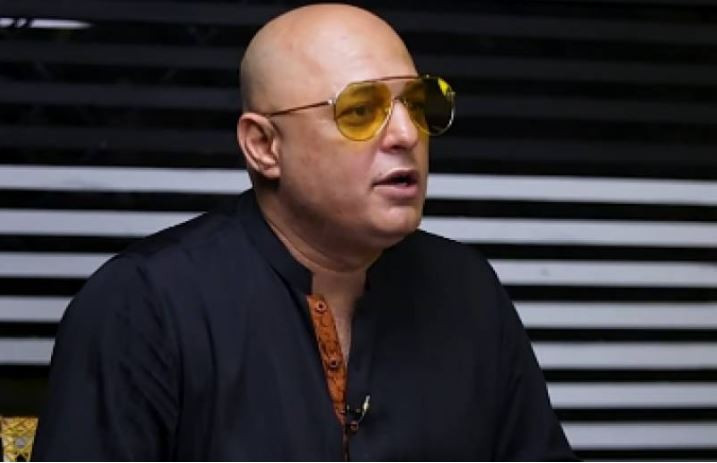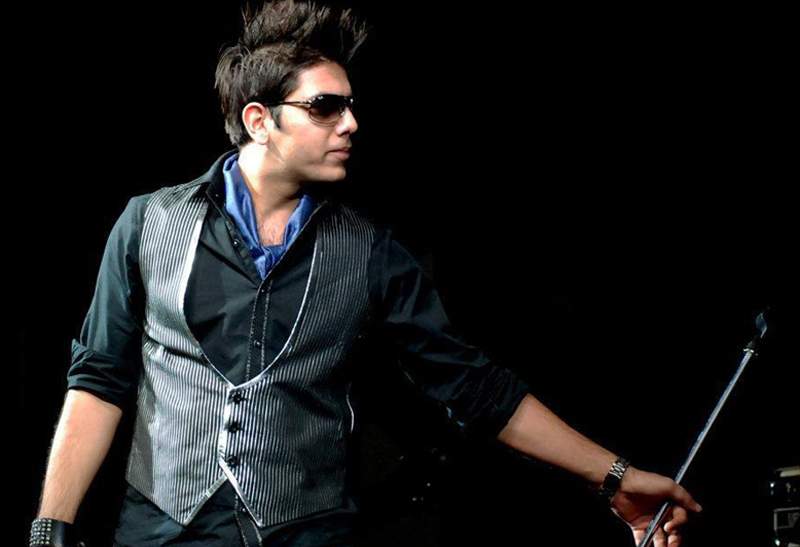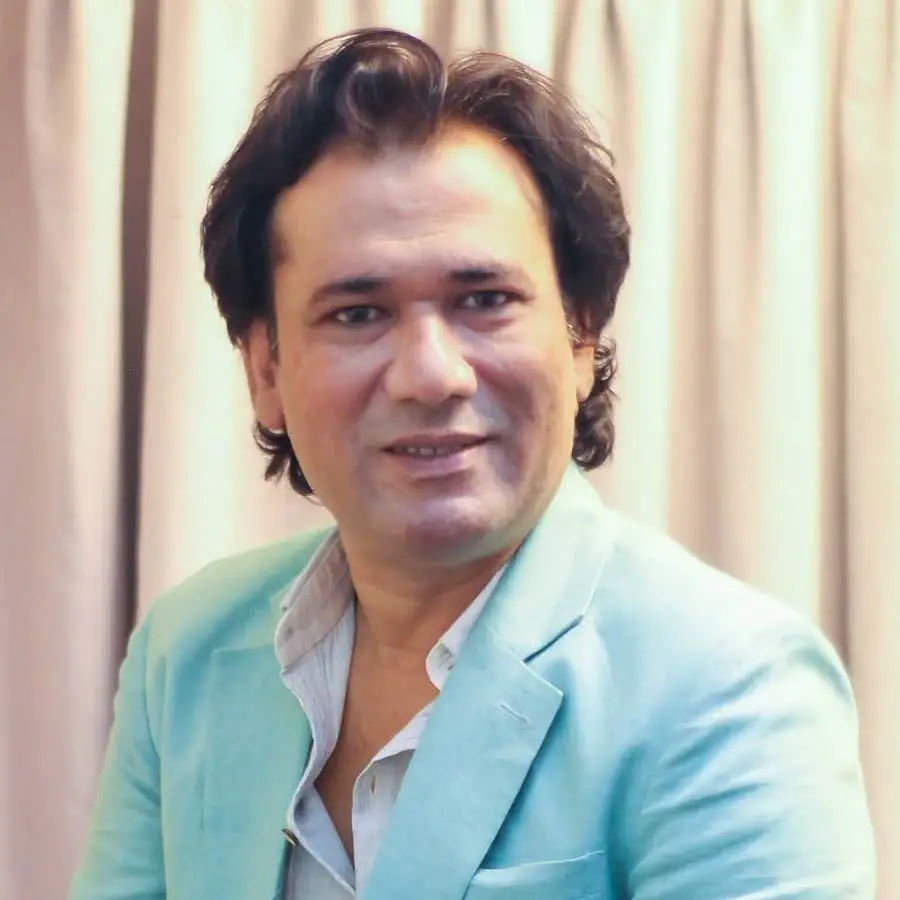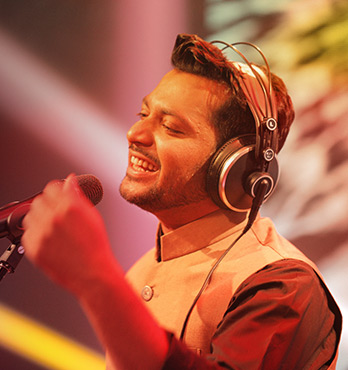


Lahore Office
"The Polo" Next to Sector "A" opp Lahore International Airport Block A part View CHS, Lahore.
Karachi Office
Street 7, Plot #10C, Badar Commercial Area DHA, Phase V, Karachi
Follow us
Request a quoteAli Azmat, born April 20, 1970, is the legendary Pakistani rock singer and lead vocalist of Junoon. Known for fusing Sufi poetry with rock, his anthems like “Sayonee” and “Jazba-e-Junoon” made him a pioneer of Sufi-rock and a cultural icon across South Asia.
Artist Bio
Ali Azmat, born April 20, 1970, is the legendary Pakistani rock singer and lead vocalist of Junoon. Known for fusing Sufi poetry with rock, his anthems like “Sayonee” and “Jazba-e-Junoon” made him a pioneer of Sufi-rock and a cultural icon across South Asia.
About Artist
Ali Azmat: The Voice of Rebellion and the Spirit of Sufi-Rock
Ali Azmat is a name that resonates with raw energy, poetic rebellion, and sonic evolution in Pakistan’s music scene. Born in Abbottabad on April 20, 1970, and raised in Lahore, Ali began his musical career in the late 1980s. But it was his joining the band Junoon in 1990 that catapulted him into stardom and forever changed the landscape of Pakistani music.
Junoon, meaning “passion,” was more than a band—it was a movement. With Ali Azmat’s gritty voice, Salman Ahmad’s guitars, and Brian O’Connell’s basslines, Junoon created the genre of Sufi-rock, blending traditional poetry with modern instrumentation. Their music, deeply spiritual and politically aware, touched millions. The track “Sayonee” became a regional hit and remains one of the most recognized songs in South Asian rock history.
Junoon’s discography, including albums like “Azadi,” “Inquilaab,” and “Parvaaz,” delivered iconic hits like “Bulleya,” “Talaash,” “Saeein,” and “Jazba-e-Junoon,” which became an unofficial anthem for Pakistan’s 1996 Cricket World Cup campaign. The band was even dubbed “The U2 of South Asia” by international media.
After Junoon disbanded in the mid-2000s, Ali Azmat took a bold step forward as a solo artist, releasing albums that explored new sonic landscapes. His debut solo album, “Social Circus” (2005), was both a commercial and critical success, featuring tracks like “Na Re Na” and “Tera Mera.” He followed this with “Klashinfolk,” continuing to showcase his signature fusion of rock, folk, and electronic music.
Ali Azmat is also a frequent performer on Coke Studio, where he’s collaborated with artists like Rahat Fateh Ali Khan, producing genre-bending performances like “Garaj Baras” and “Dum Mast Qalandar.” His presence on the platform proved that even decades into his career, he remains relevant, inventive, and electrifying on stage.
His influence extends beyond music. Ali has appeared in films, both Pakistani and Indian, and served as a judge on talent shows, mentoring the next generation of musicians. He’s also a cultural commentator, often speaking on the role of music in society and national identity.
With a career spanning over 30 years, Ali Azmat is not just a rockstar—he is a cultural icon. He represents freedom of expression, spiritual awakening, and the power of music to inspire change. His work continues to influence artists across genres and generations.
Whether belting out soul-shaking Sufi verses or headlining international rock festivals, Ali Azmat remains one of the most compelling figures in South Asian music history.

Artist's Personal Details
Born :
20-Apr-70
Career Starting Date :
1990
Nationality :
Pakistani
Most Popular Song / Album :
Sayonee
Height :
5' 8"
Search Artist by Category
More Artist:

Jal (Gohar Mumtaz) is one of the most iconic names in Pakistan’s pop and rock music scene. Formed in the...
Read More
Karam Abbas is an emerging name in Pakistan’s evolving music scene, known for his unique vocal tone and emotional depth....
Read More
Mughira Ahmed is a talented and promising Pakistani singer, songwriter, and performer making a mark with his melodious voice and...
Read More
Zeeshan Rokhri was a celebrated Pakistani singer known for his soul-touching Saraiki and Punjabi music. Carrying forward the musical legacy...
Read More
Young Stunners is a groundbreaking Pakistani hip-hop/rap duo that has revolutionized the urban music scene in Pakistan. Comprising Talha Anjum...
Read More
Ahmed Jehanzeb is a renowned Pakistani singer, musician, and composer, best known for his soulful voice and musical versatility. His...
Read More
Mulazim Hussain is a talented Pakistani singer and performer, best known for his rich, soulful voice and emotional delivery. Gaining...
Read More
Vahaj Hanif is a rising star in Pakistan’s music scene, known for his distinctive voice, emotive songwriting, and captivating performances....
Read More
Abrar Ul Haq is one of Pakistan’s most iconic pop and bhangra singers, widely celebrated for his energetic beats, witty...
Read More